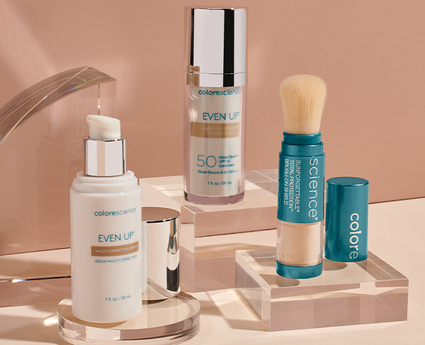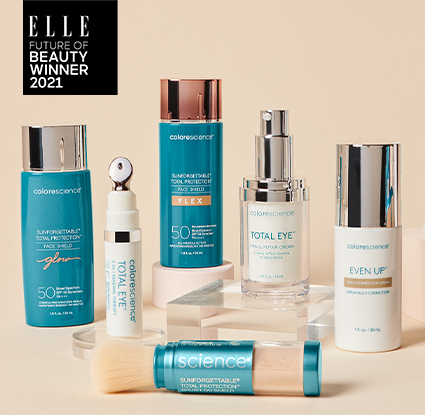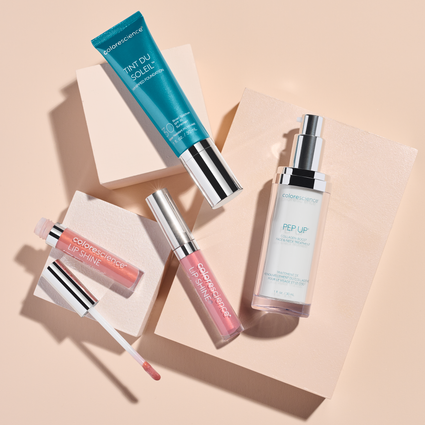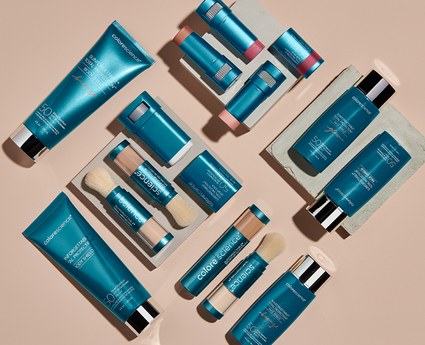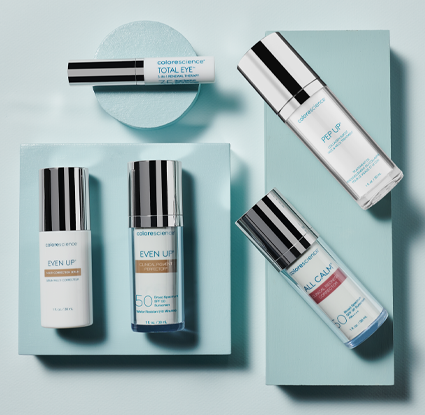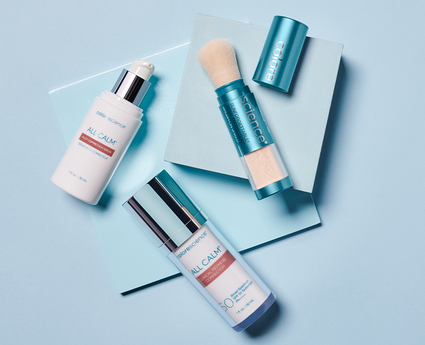Sunburn Relief: 17 Home Remedies for Sunburns
There’s nothing like relaxing under the warm sun, soaking in the fresh air and freedom. However, without the right sun protection, your day can go from peaceful to painful in a matter of hours.
When you get a sunburn, it can make your skin tender, itchy, and even cause it to scar, which is why it’s important to stop one from forming in the first place—and use the proper techniques to help it heal once it occurs. While you want to do everything you can to prevent a sunburn, sometimes accidents happen despite your best intentions. And we’re here to help if that’s the case.
We have tips to help you prevent sunburns and home remedies for sunburn relief, so you can take the best care of your skin. Keep reading for a comprehensive overview on sunburn relief and prevention, or use the links below to go straight to a solution that seems like a good fit for you.
- How Do Sunburns Happen?
- How to Prevent Sunburns
- How to Treat Sunburns at Home
- Ways to Draw Out the Heat & Cool Down Your Skin
- Healing with Nature
- Solutions Straight from the Pantry
- Moisturize & Rehydrate
- What to Do About Severe Sunburn
How Do Sunburns Happen?
Ultraviolet (UV) radiation from the sun can disrupt important molecules and wreak havoc on your body’s immune system. When UV radiation hits your skin, pigments called melanin absorb it to shield your DNA from harm.
Melanin is what gives your skin its color; when skin is exposed to UV, production of melanin speeds up—that’s why your skin tans when you’re out in the sun for a while. Unfortunately, the melanin defense isn’t foolproof, and some UV rays can sneak past and damage your DNA, turning your melanin against you by encouraging the production of free radicals.
Once your cells are damaged, they produce warning signals, which catalyzes your body to produce an inflammatory response. Many different types of blood cells are sent to the area of burn—this is the reason your skin becomes red and painful to the touch.
How to Prevent Sunburns
Nobody wants a sunburn, and luckily, it’s easy to protect yourself against harmful UV rays. Wearing sunscreen is the best way to prevent sunburns, but it’s not as simple as slathering some on when you head out for the day. Proper application and reapplication is essential for sufficient sun protection.
Here are a few things you can do to ensure your sunscreen is effectively helping you prevent sunburn:
- Use sun protection daily, even if it’s overcast or you’re not spending a lot of time outside.
- Buy a broad-spectrum sunscreen that protects against both UVA and UVB rays.
- Use a sunscreen that’s SPF 30 or higher as recommended by the American Cancer Society.
- Apply sunscreen before you go outside and reapply at least every two hours.
- Wear water-resistant sunscreen if you’re going to be swimming or sweating substantially.
- Avoid the outdoors when the sun is at its peak—between 10am and 4pm.
In addition to wearing sunscreen, you should wear protective clothing if possible—including long sleeves and a hat—and seek out shade when available. While shade can’t completely protect you from sunburn, it can help provide a little reprieve for your skin.

How to Treat Sunburns at Home
But what if you already have a sunburn? Sometimes the sun gets the best of us, especially if we're not sure when sun protection is necessary. But if you’re dealing with a painful, red sunburn and want to get some sweet relief, there are 10 great home remedies for sunburn relief to pick from—and most of them you probably already have in your home. So, what helps sunburn? We have you covered with a versatile list of sunburn remedies. Here are 17 solutions for sunburn relief that you can try, and most of them only require supplies you probably already have in your home.

Ways to Draw Out the Heat & Cool Down Your Skin
1. Cold Compress
How do you take the sting out of a sunburn? Cool it down. Our first home remedy for sunburn relief is a classic for a reason. Cold compresses can help absorb heat and provide immediate cooling comfort for painful burns. Something to steer clear of? Placing ice directly on the skin. This can actually result in a cold burn on top of your sunburn—talk about making the situation worse. If you don’t have a padded cold compress, wrap a hand towel around a plastic baggie filled with ice for an easy DIY option.
2. Cool Bath
Taking a hot shower is a no-no after getting a burn, but a cool bath can do wonders for sunburn relief. When you’re ready to take a soak, fill up the bath with cool water and get in slowly. Add cups of baking soda to your bath water for some extra soothing power. Baking soda can help your sunburnt skin return to its natural pH levels by balancing acid and alkaline levels. Note: baking soda can be drying, so keep your soak time limited to 15 minutes.
3. Milk Bath
While it might sound odd, milk can be soothing for sunburned skin. Not only can it help cool down your skin, but the proteins and vitamins can also help reduce inflammation. To take a milk bath, add one to two cups of milk to your bath water and soak for about 10 to 20 minutes. For a vegan alternative with similar benefits, try coconut milk.
Healing with Nature
4. Aloe Vera
Aloe vera has been used for thousands of years to treat a variety of conditions, and the American Academy of Dermatology (AAD) recommends using topical applications that contain aloe vera to help reduce the symptoms of a sunburn. Many topical products contain aloe vera, but you can also cut open an aloe vera leaf and remove the sticky gel inside. Start cultivating that green thumb and keep an aloe vera plant on hand—you never know when it might come in handy for sunburn relief.
5. Essential Oils
If you’re looking for a natural home remedy for a sunburn, stock up on essential oils. There are plenty of options, but some of the most commonly used oils for sunburn relief include lavender, sandalwood, and eucalyptus.
- Lavender: Lavender essential oil offers antifungal, antibacterial, and carminative properties that can help soothe a painful sunburn.
- Sandalwood: Sandalwood essential oil can be used to reduce inflammation while cooling burns. This oil is also capable of removing germs that might otherwise cause infection.
- Eucalyptus: Eucalyptus essential oil can provide a numbing effect, with mentholated properties offering a soothing effect. This oil also offers antibacterial properties to prevent infection.
6. Witch Hazel
Witch hazel is a liquid extract derived from the witch hazel plant. This extract contains oils and tannins that have been purported to reduce inflammation, draw skin tissue together for improved healing, and fight free radicals. Apply witch hazel to your burn to get relief from pain and itching.
7. Coconut Oil
Before you reach for your container, it’s important to note that coconut oil should only be used for sunburns after they stop feeling hot and blisters have healed. You can either use coconut oil as a sunburn remedy in liquid oil form or cold-pressed. Once you’re in the state where coconut oil is safe to use, apply liberally for the best outcome.
Solutions Straight from the Pantry
8. Black Tea
Studies show that black tea may have anti-inflammatory properties, and its ability to reduce inflammation could prove to be a source of relief for sunburnt skin. Bring the tea to a boil as you normally would, and then wait for it to cool down, as you don’t want to put hot tea on your skin. Once it’s cool, you can either use cotton balls dipped in the tea and apply it to your sunburn that way, or you can set tea bags directly on your skin. The second method works well for smaller areas that need sunburn relief, like your eyelids. You can also use green tea if black tea is not available.
9. Apple Cider Vinegar
If you have a bottle of apple cider vinegar in your pantry, use it to complete an effective sunburnt skin treatment at home. Apple cider vinegar contains malic acid, an AHA that stimulates circulation to speed up the healing process. Apple cider vinegar also helps maintain the skin’s pH levels which can help reduce peeling and blisters. This common household product is naturally antimicrobial, antiseptic, and antifungal, making it an excellent solution for helping to prevent infection in damaged skin tissue. Don’t have apple cider vinegar? Grab a bottle of white vinegar, as this variety has been known to soothe the symptoms of sunburn as well.
10. Oatmeal
Oatmeal can actually be an effective home remedy for sunburn relief. Opt for traditional oatmeal instead of instant oats, and cook as directed. Add a bit more water than called for; this will ensure a runnier consistency that makes it easier to apply to the skin. Allow the oatmeal to cool completely, then carefully apply the paste to the skin. Don’t rub it into the skin; because oatmeal can be grainy, it may have an exfoliating effect—not a good idea for skin that’s sun-damaged and sensitive to touch.
11. Yogurt
Grab a container of chilled yogurt from the refrigerator and apply generously to the area of your burn. This dairy trick will help you soothe your burn; although yogurt doesn’t actually contain any healing properties, the sweet relief from the heat is more than welcome.
12. Cornstarch
Create a paste using cornstarch and water to slather on sunburned areas. To make the paste, you’ll just need cornstarch and cool water, mixing the two ingredients until you get a thick consistency that can be applied to the skin. The larger the sunburn, the more you’ll need, so make your batch accordingly.
In addition to using it as a paste, you can use cornstarch powder to help with the chafing of sunburned skin against clothes.

13. Cucumbers
Cucumbers are commonly used in spa treatments, lotions, and more for their soothing properties. So why not use them for sunburn relief? Slice some cucumbers to put directly on the burned areas—this is a great home remedy for face sunburn—or create a paste out of them. To make a cucumber paste, place a whole cucumber (or two, depending on how much paste you need) in the blender with baking soda.
14. Potatoes
Potatoes have long been used for their healing properties, which can be helpful when you have a sunburn. Some recommend putting the potatoes in a blender and using the liquid by dipping cotton balls in and then applying those to your skin. Others recommend putting potato slices directly on your skin.
15. Honey
Putting this sticky substance on your skin might not sound ideal, but if you’re in a pinch, it can provide sunburn relief. In fact, there are many benefits to using honey as a sunburn remedy. Not only can it help reduce inflammation, but it also has antibacterial and moisturizing qualities.
Moisturize & Rehydrate
16. Drink More Water
Severe sunburns force blood vessels to dilate, causing you to lose moisture from your skin at a faster rate. This can lead to fatigue, dehydration, and heatstroke in certain situations. For the first few days following your sunburn, increase your intake of water and other caffeine-free, alcohol-free beverages to stay hydrated.
17. Use Petroleum-Based Products
Petroleum-based healing ointments—like Vaseline or Aquaphor—can be helpful for sunburns. To get the most benefit from this home remedy for sunburn, apply the ointment while your skin is still slightly wet, like when you first get out of the bath or shower. This will help lock in as much moisture as possible.
What to Do About Severe Sunburn
Minor sunburns are usually easy enough to handle with the methods above. However, severe sunburns may require extra attention. If you’re looking for home remedies for a severe sunburn, first consider whether the burn requires medical care.
Medical Care for Sunburns
The following symptoms may indicate your sunburn is severe enough to warrant a trip to the doctor’s office:
- Blisters are forming across a large portion of the body
- You begin developing a fever, headache, nausea, or chills
- Your sunburn isn’t responding to treatment after a few days
- Your sunburn is showing signs of infection, including yellow pus, swelling, and extreme tenderness
If you’re in a lot of pain or suffering from swelling, medication may be able to help provide some relief. Over-the-counter (OTC) medications like anti-inflammatory drugs or hydrocortisone cream are often recommended for sunburn relief.
It’s important to note that sometimes visiting the doctor may be necessary to help address and prevent sunburns. This may be the case if you’re naturally sensitive to the sun due to an underlying condition, or if you’re on a prescription that is putting you at a higher risk of sunburn. Consulting your doctor will allow you to put a plan in action that can help you.
Handling a Severe Sunburn at Home
If your sunburn isn’t severe enough to seek medical attention, do all you can to relieve inflammation—the abovementioned home remedies for sunburn relief are a good start.

Follow these tips to help prevent lasting damage and get relief from your burn sooner:
- Moisturize: Your skin needs all the TLC it can get, so make sure you’re applying moisturizer every day and incorporating essential skin care products in to your daily routine. Be liberal with your application and slather on as much as possible—your skin needs it.
- Stop Itching: Sunburns can be unyieldingly itchy, but do your best to avoid scratching. This can damage already sensitive skin and result in scars that may stay with you for a lifetime.
- Don’t Peel: Avoid the temptation of peeling dead skin from your burn, as this practice could lead to infection and permanent scarring.
- Stay Hydrated: Drink water and electrolyte-rich beverages to help speed the recovery process along.
- Prevent Scarring: Scars can occur whenever there’s trauma to the skin, and the only way to completely avoid scarring is to prevent burning in the first place. If you notice scarring, ask your doctor about scar creams.
While these solutions can help you calm the physical symptoms of your burn, they don’t address the look of a sunburn. Unfortunately, your skin will probably retain its red tint for the first few days. In the meantime, if you’re feeling self-conscious, you can wear our redness corrector to reduce the appearance of your burn.
It’s important to note that sunburns cause more than temporary pain. In fact, 90% of aging is a result of sun damage. So, while a sunburn might seem like a minor thing in and of itself, it can actually have lasting consequences. Treating your sunburn in a timely manner can help reduce the signs of aging, and taking care to prevent future sunburns can help you keep your skin looking its best.

Enjoy the Sun & Protect Your Skin
With the tips above, you’ll have quick and easy solutions for sunburn relief and know what to do in the case of a severe burn. However, the best solution is always prevention. Make sure you’re doing everything you can to prevent getting sunburned in the first place whenever possible. Wear a hat to protect your face, avoid the harshest hours of the day, and most importantly, always wear sunscreen. Now, it’s easier than ever to take sunscreen with you on-the-go. Throw a powder sunscreen into your bag, so you can reapply conveniently and keep your skin protected at all times.

